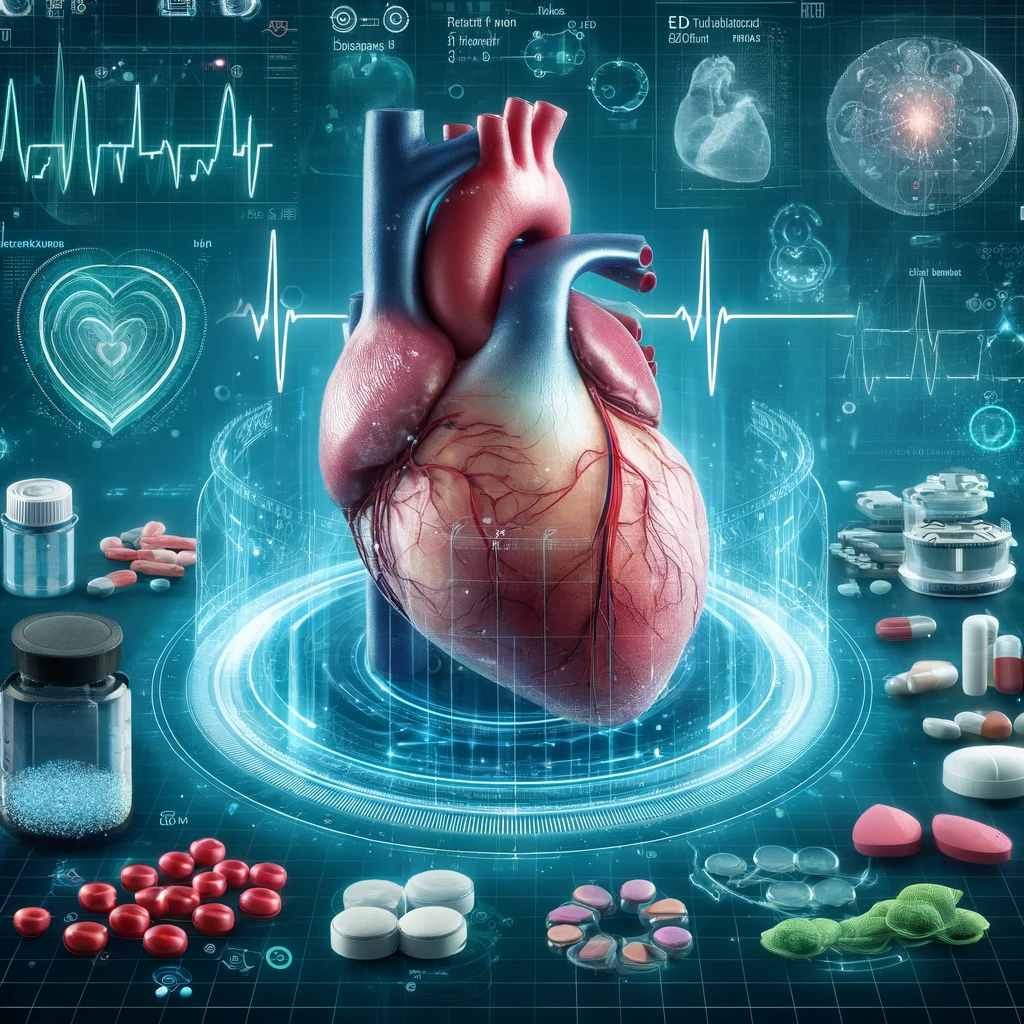Progress in Cardiology Medicine: A New Era of Heart Care

Cardiovascular diseases (CVDs) remain one of the leading causes of death worldwide, but advancements in cardiology medicine have revolutionized how we diagnose, treat, and prevent heart conditions. With the rise of innovative medical technologies and breakthrough treatments, cardiology has made significant strides in improving patient outcomes and managing heart health more effectively.
Key Advances in Cardiology Medicine
-
Precision Medicine: One of the most exciting developments in cardiology is the use of precision medicine, where treatment is tailored to an individual’s genetic makeup. By analyzing a patient's DNA, doctors can better predict how they will respond to certain treatments and medications. This personalized approach is particularly effective in managing cholesterol levels, high blood pressure, and other risk factors for heart disease.
-
Minimally Invasive Heart Procedures: Traditional open-heart surgeries have given way to minimally invasive techniques, such as transcatheter aortic valve replacement (TAVR). These procedures allow doctors to repair or replace heart valves without large incisions, reducing recovery time and lowering the risk of complications. Similarly, advancements in coronary angioplasty and stenting have improved the treatment of blocked arteries.
-
Artificial Intelligence and Diagnostics: Artificial intelligence (AI) is transforming the way heart conditions are diagnosed. AI-powered algorithms can analyze vast amounts of data from electrocardiograms (ECGs) and imaging tests to detect abnormalities that might be missed by the human eye. This allows for faster, more accurate diagnoses of conditions like arrhythmias, heart attacks, and heart failure.
-
Wearable Health Technology: Wearable devices such as smartwatches and fitness trackers are playing an increasingly important role in cardiology. These devices monitor heart rate, activity levels, and even detect irregular heart rhythms in real time. Patients can receive alerts if something is wrong, prompting early intervention before a serious event like a heart attack occurs. Data from wearables also provides doctors with valuable insights into a patient’s day-to-day heart health.
-
Advancements in Medications: The pharmaceutical landscape for cardiology has also evolved significantly. Statins have long been the standard treatment for high cholesterol, but newer drugs like PCSK9 inhibitors offer even more powerful cholesterol-lowering effects. Medications for managing heart failure have improved with the introduction of SGLT2 inhibitors, which not only help control blood sugar but also reduce heart failure hospitalizations.
-
Cardiac Regeneration and Stem Cells: Regenerative medicine is a rapidly growing field that offers hope for heart disease patients. Scientists are exploring ways to regenerate damaged heart tissue using stem cells and gene therapy. This approach could eventually lead to treatments that repair the heart after a heart attack, restoring function to damaged areas.
Preventive Care and Lifestyle Integration
While treatments have improved, cardiology is increasingly focused on preventive care. Advancements in nutrition science, exercise, and stress management are essential components of modern heart care. Personalized lifestyle plans based on genetic data and health profiles help patients avoid risk factors and prevent cardiovascular disease.
Challenges and Future Directions
Despite these advancements, challenges remain in making these treatments accessible to all patients globally. Additionally, research into heart disease prevention and treatment continues to explore areas like the development of vaccines for atherosclerosis and the role of the microbiome in heart health.
In the future, cardiology will likely see even more breakthroughs in the integration of AI, robotics, and personalized medicine, offering more effective, less invasive treatments.
Conclusion
The progress in cardiology medicine over the past few decades has transformed the way we treat heart diseases, from personalized medications to life-saving minimally invasive procedures. As technology continues to evolve, the future of cardiology holds even more promise for preventing and managing cardiovascular conditions, ultimately improving heart health for millions worldwide.